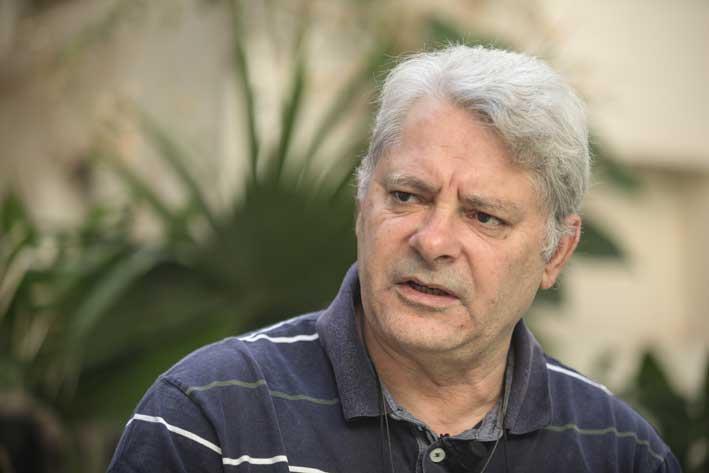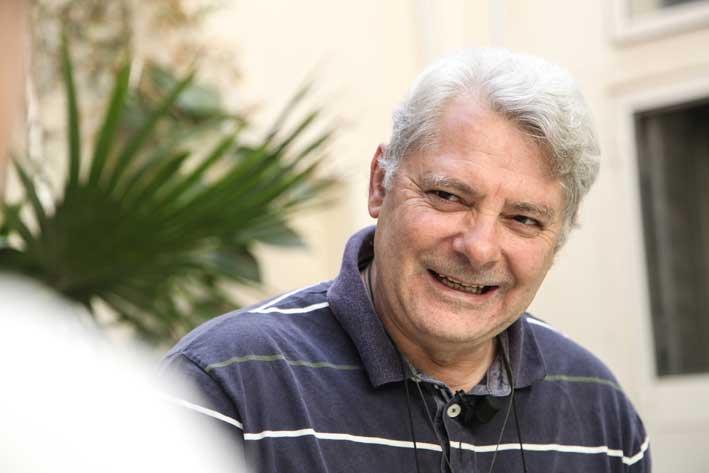Fr Vince Magri, who is the director at the Paulo Freire Institute has worked with vulnerable people of Maltese society for over 27 years. The Malta Independent met him to discuss the extent of poverty in Malta, its implications and why we still find the levels of poverty that we see today.
The institute is named after a Brazilian man who lived during a time of oppression and dictatorship. Paulo Freire believed that there was much to be learned from poor people. He also had a theory, which is still applied today, that education must not be bombastic, but it must help citizens to form part of and contribute in all areas of society. Rather than regurgitating materials from text books, education should “empower” people to become meaningful parts of society, said FrMagri.
“We have taken on board this philosophy, which is why in our work with people in reduced circumstances we do not act as a bank and provide temporary solutions for their problems. We take an interest in them, we respect them, we involve ourselves and we treat them with dignity. We teach them to read and write, provide them with skills that are necessary and useful in all aspects of life. At the same time, we open our minds to them and we learn from them, which is extremely important.”

Anti-Poverty Forum
The Anti-Poverty Forum is a forum which is made up of 13 NGOs who work with vulnerable people in various sections of society. The Paulo Freire Institute forms part of this forum, which acts as a “platform that provides a voice to those who need it as well as involving all stakeholders such as government institutions,” said FrMagri.
The Anti-Poverty Forum in Malta forms part of the European Anti Poverty Network, which brings together all anti-poverty networks in every country in Europe, including those who do not form paty of the EU. The European network actively lobbies the European Commission with the aim of eradicating poverty of all kinds.
“This is a huge ambition, we are aware,” said FrMagri, however work is being done on a small scale at national level, as well as on a large scale with lobbying taking place in Brussels at a supranational level.
Poverty comes in different forms
Many people are unaware of the levels of poverty found in Malta, this is because they do not see many homeless people on the streets, said FrMagri. In Malta we find an abundance of what is known as ‘relative poverty’. This kind of poverty refers to being unable to keep up with the standard of living, thereby being marginalised by society. Therefore, a lot of the poverty found in Malta does not translate into not meeting basic needs, but means that one cannot “keep up with life,” said FrMagri. He continued by saying that for people living in relative poverty, a situation such as needing to go to the dentist or a washing machine breaking, can be devastating as they do not have the means to keep up. In addition to not having the means to address issues that come up in day-to-day life, people living in relative poverty also do not have the means to take part in cultural activities, which leaves them feeling further marginalised.
“These people definitely cannot afford to travel. One would question why the ability to travel is being counted as a criteria to measure poverty, however we expect people to have equal access to what society has to offer, which isn’t the case,” said Fr Magri.

Social protection
FrMagri explained that the level of social protection and benefits available in Malta is very generous, however he questioned whether this is enough. He also questioned the logic of making benefits available to individuals who certainly have the means to live an independent and comfortable life.The most vulnerable homes in society, such as single mothers or households with two adults as well as children living on a single wage are losing out from the benefits awarded to those who do not need it.
Addressing the skills gap
In the past, people who for whichever reason left school without the most basic of skills had the opportunity to work in factories, where they earned a relatively decent wage. In this day and age jobs available in Malta’s labour market are getting more and more specialised. Mr Magri said that for this reason the institute focuses its work with vulnerable people on teaching them valuable skills. He said that the institute makes sure that those who come seeking help can read and write in Maltese and English, as well as use a computer. He said that these skills are vital in order to find a job that pays a decent living wage.

Government poverty needs to help the poor
FrMagri said that as long as government keeps ignoring policy that can bring meaningful change for poor and impoverished persons than we will always have people living in poverty. He gave special mention to the need to increase the minimum wage as well the poor distribution of wealth currently found all over the world. FrMagri said that he “completely agrees” with what President ColeiroPreca said in her speech on the eradication of poverty at a UN summit, where it was said that poverty is not the fault of family’s born with very little opportunities, but the fault of government policies not addressing the stark imbalance of wealth found in the world today. FrMagri spoke of the logic in spending so staggering amounts of money on guns and war when we find so many people who are living in such deplorable conditions
We need to accept and respect each other
In his closing remarks, FrMagri said that society has not yet learned to live in a world where we accept and respect each other, and treat each other with dignity. He said if this was the case we would not let millions of people suffer the way that we do. He concluded by saying “the government gets criticised when it doesn’t do its job, rightly so, however we must do our part as citizens to help the situation. As long as people do not do this, inequalities will always remain.”